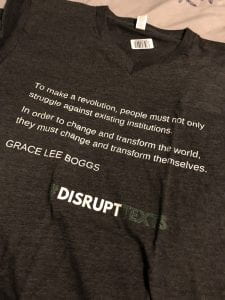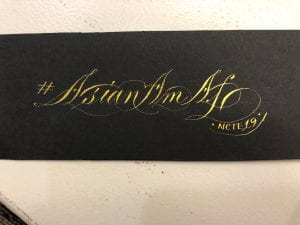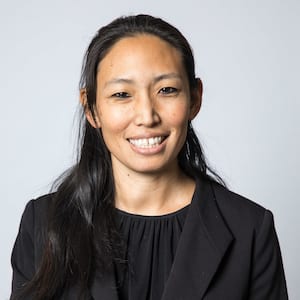I saw this academic meme once (variations of which have been published in relation to other professions) that noted that the perception from the outside is different than the lived experience of those of us on the tenure track. I’m actually pretty used to that, as prior to becoming an academic, I was a middle school teacher.
Some people outside of education think that K-12 teaching is all about working 7:30-3:30 and getting summers and holidays “off.” It’s a nice “career” where you get to spend your day working with kids and spend time with your kids. What could be better? (Actual educators know that teaching is NOT just about that you are in class with students, but also about lesson planning, preparation, assessment, working with parents, participating in professional development opportunities, working with colleagues, etc., involving long hours and often continuing through the summer. All of this goes on behind the scenes, but is the real work of teaching.)
Similarly, faculty life in academia, with it’s flexible work structure, can be seen as an even more cushy profession. I mean, I’m on an early career 3-year course release so I only teach 3 courses a semester (WAY less than the 5 that I used to teach at the middle school level). I still get summers “off” and now, not only do I get to spend the summer with my kid, but I have time to volunteer at his school and be the treasurer for the PTA. Why do I always seem so stressed on this blog?
Well, here’s why: I am a nerdy workaholic with poor boundaries that values teaching and is a team player. So, finding balance isn’t easy. What does that translate to?
1) I have to find (make?) the time necessary for academic work (i.e. reading, writing, research, presentations, etc.) and there’s a lot of time necessary for academic work.
I’ve been working on a manuscript for an article (that I just sent off today) for the past several months. This process has involved extensive reading in the literature of my field, conceptualizing a study, getting it approved by an institutional research board, data collection (which actually has been taking place for a year and a half), data analysis in working with a research assistant, writing, revising (with the support of a research partner at another university), revising again, finding a journal that I think would be a good fit, editing and submission. I’ve always been a good student so I thought, when pursuing an academic career, that this would be ideal. I mean, they pay me to read and to write! Except that I put a TON of work into my teaching (see #2), leaving less time to read, write and think than I need, thus rendering the nerd in me somehow deeply unsatisfied at my academic publication progress. I have a lot of data and some really interesting things to say (I think they’re interesting at least), but I need the time to stay current with reading in my field, opportunities to think deeply about the literature I read (which is hard when sometimes you don’t have a lot of time or opportunities to talk about your field of research with colleagues), time to analyze and write about my data, time to present and get feedback. And, the most frustrating part, is that I need acceptance (which is completely out of my control) in order to validate the academic work that I’m doing. So, while my fingers are crossed with this latest submission, almost 6 months + of work could result in a “we’ve chosen not to move forward with this article.” Sigh.
(And this is just the process on my single authored work. My joint-authored submissions involve all of this and collaborative meetings to discuss and align voice in the papers–yet, that’s often regarded as “lesser” work depending on the order of my name in the article. Double sigh.)
2) Teaching 3 classes to the level that I expect takes a lot of time.
I’ve never been shy in identifying as a teacher. While as a person, I am a research nerd, as a professional, I’ve always been a teacher, and the only reason I left my middle school classroom was to make a bigger impact on the profession that I love. So, when opportunities for curricular revision come forth including the integration of new literacies & technologies, aligning coursework to research in our field (both pedagogically and in terms of curriculum), and integrating engaging activities that model strategies for my preservice teachers, of course, I’m going to take the extra time to embed them into my classes. And, each semester that I teach a course, I revise it. I do reuse some of my materials from semester to semester but rather than resting on my laurels from the previous semester, I use the time that I save from not reinventing the wheel to tweak and add to the course, often spending extensive time giving feedback and working with individual students each semester. While I am teaching far fewer hours in front of the classroom, the depth and length of work I’m now assessing and the high stakes of teaching in a professional program mean that a lot of my week is spent on teaching.
3) Being a team player means various levels of service which all takes time too.
One of the aspects of academia that often is hidden to those on the outside is the idea of service; however, service is an important part of the review process, and fundamentally something that I believe in. I serve on various departmental, program, college and university committees. I’ve recently been on a couple of time-intensive grant committees and I serve my professional community both through speaking and consulting engagements throughout the state. This is just the beginning of my career, so at some point, I expect greater commitments at the state and national level, likely meaning more travel and less space in my calendar, but providing opportunities to make the difference that I want to in my field.
4) In addition to all of this, there is “flexibility” so I can fill my schedule with family commitments. Oh wait, that also takes time.
Remember that part about bad boundary setting? Well, as a former teacher, I know the importance of parent volunteers, particularly for public schools. So, when asked to serve as PTA treasurer, I said sure and put my name on the ballot. Then, when my son’s teacher needed someone to check off homework each week, I also committed to that. I drop off my son at school every day (unless I’m out of town for work); I scale pinterest for ideas for his birthday party (why didn’t I just do Chuck E. Cheese?); I attend as many “during the day” school functions as I can–because I know that time is precious and it’s a privilege to have the flexibility in my schedule. But, that same flexibility leads to the regular 16-hours a day that I work on several days a week when I’m not at his school. I’m privileged not to miss those moments, but I’m exhausted.
So, every once in awhile I need days like today, where I did some academic reading, submitted my manuscript and aside from answering a few e-mails and responding to discussion board posts, I took the rest of today for myself. I napped. (In my 6th month of pregnancy, this is more of a requirement than an option yet it’s been WEEKS since I last napped because of the start of the semester) I took myself to lunch and bought myself new eyeliner. Now, I’m writing this week’s blog (because Friday will be full of mom-commitments–homework check-off and Chinese New Year celebration at school) while junk television plays in the background. Ah, balance. Today, the balance was in my favor, and my life seems amazing, but I know I have to keep working at it because there are more 16-hour days right around the corner.





